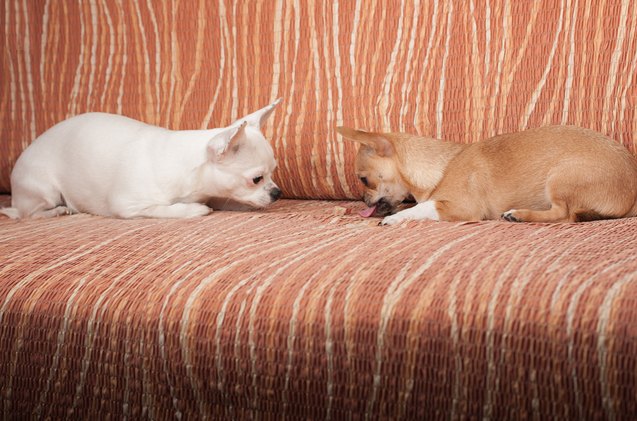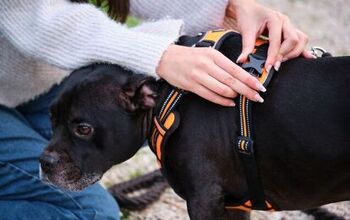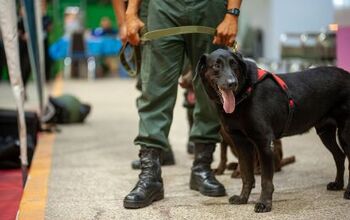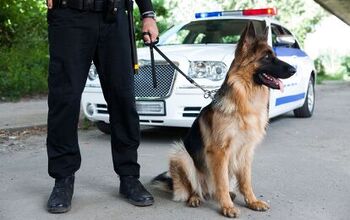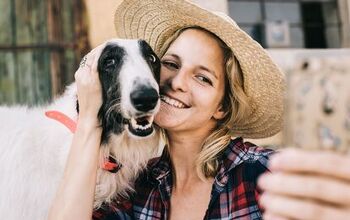New Research Shows Dogs Can Be Generous

Researchers Rachel Dale and Friederike Range from the Messerli Research Institute at Vetmeduni, Vienna, had found that canines are prone to food rewards with other dogs. In previous studies, they found dogs would deliver treats to a dog they were partnered with.
The researchers decided to expand on that work by testing whether or not dogs would still show generosity and share with other dogs. And it turns out that they did, particularly when the dog was familiar – this proves that much like humans, dogs are more likely to be generous with their ‘friends and family,’ than with those unknown to them.
Related: What Does “Human Grade” Mean When it Comes to Dog Food?
In the newest study, dogs had to recognize objects (tokens) in order to deliver a treat to its ‘partner’ dog (the earlier study only required the dog to pull a rope in order to deliver treats to themselves or partner dogs). Researchers found the dogs delivered, choosing to not only reward themselves, but their partner dog. Taking it up to the next level, they made the task even more tricky to see if the difficulty level made a difference; as well, they added ‘stranger’ dogs to the mix to see whether a dog had a preference when choosing to complete a task and deliver a treat.
They also set up different testing scenarios–one where the test dog could see its canine treat recipient; one where the test dog could not see the other dog but the dogs were together in the same enclosure; and one where the dogs were separated completely, and the test dog was simply observed to see whether he’d ‘deliver’ a treat, regardless of another dog being seen as a recipient, or a partner in delivery.
What they found was that when the dogs could see each other, the test dog more often chose to deliver the treat to the other dog, though if the other dog was a stranger to them, they chose to do so less often. If they could not see the other dog, but had a dog present with them in the testing enclosure, they still chose to ‘reward’ the ‘other’ dog, leading researchers to believe they exhibited a behavior called social facilitation–being motivated to do something simply because one is in the presence of ‘social peers.’
Related: Happy Pet Thoughts Help Soothe Social Rejection
When the dogs were completely alone, and the test dog could not see the receiving dog, nor had a partner with him, the number of behaviors required to ‘deliver the treat’ significantly went down. Researchers believe that the dogs did not see the purpose of doing the work if it was not benefitting a partner. (They had separate and easily accessible options for receiving treats themselves to ensure they maintained motivation through the study.)
The researchers believe this is important for future studies, as they need to consider social facilitation when it comes to research with dogs. This study shows that they will more likely perform tasks differently for another creature, especially a known dog or human, and especially when the other creature is visible, and also confirms the belief that dogs, like humans and some other higher-order animals prefer to share with their friends and family.

More by Lori Ennis



